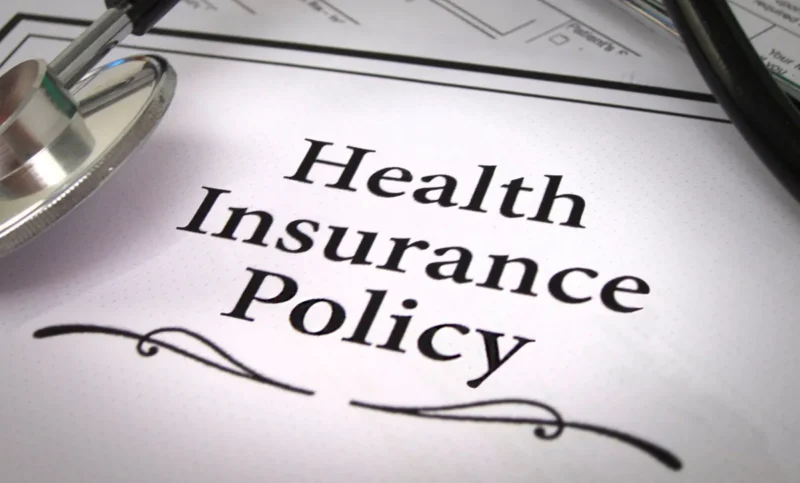When it comes to health insurance, there are a lot of choices to make. One of the most important choices is deciding on a high or low deductible health insurance plan. At first glance, it may seem like an easy decision. A low deductible plan means that you will have to pay less out-of-pocket when you need care. But a high deductible plan could save you money in the long run if you stay healthy and don’t need to use your insurance very often. So, how do you decide? It really depends on your individual needs and health status. In this blog post, we will explore the pros and cons of both insurance plans so that you can make the best decision for yourself.
Why is Health Insurance a Must Have?

There are a number of reasons why having health insurance is important.
First, it can help you pay for medical care if you become ill or injured.
Second, it can help you pay for preventive care, such as screenings and vaccinations, which can help you stay healthy and avoid costly medical bills down the road.
Third, it can provide peace of mind in knowing that you and your family are protected financially in the event of a medical emergency.
While there are many different types of health insurance plans available, they all share these basic features. That’s why it’s so important to have health insurance: to help you pay for the care you need to stay healthy and protect yourself and your family financially.
What is a High Deductible Health Insurance Plan?
Health insurance is a type of insurance that helps cover the costs of medical care. It can help pay for things like doctor visits, prescription drugs, hospital stays, and more. There are many different types of health insurance, and not all plans cover the same things.
High deductible health insurance is a type of insurance that requires the policyholder to pay a higher deductible before the insurance company will start to pay for covered medical expenses. The main advantage is that it can often save you money on your monthly premiums. However, you need to be sure that you can afford to pay the higher deductible if you have an unexpected medical emergency.
What is a Low Deductible Health Insurance Plan?

A low deductible health insurance plan is a type of health insurance that has a lower amount of money that you have to pay before your insurance company starts to pay for your medical expenses. For example, if you have a $500 deductible, you would need to pay the first $500 of any medical bills yourself before your insurance company would start to help pay for them. This can be helpful if you expect to have high medical bills, or if you simply want to reduce your out-of-pocket costs.
How to Choose the Right Plan for You?
When it comes to health insurance, you have a lot of options. Two of the most common types of health insurance are high deductible and low deductible plans. So, how do you know which type of plan is right for you?
Here are a few things to consider when choosing between a high deductible and low deductible health insurance plan:
- Your budget. How much can you afford to pay out-of-pocket before your insurance kicks in? If you have a limited budget, a high deductible plan might not be the best option for you.
- Your health needs. Do you require frequent doctor visits or prescription medications? If so, a low deductible plan might be a better choice for you.
- Your lifestyle. Are you an active person who participates in risky activities? If so, a high deductible plan might be a good fit for you since it will likely have lower premiums than a low deductible plan.
- Your family history. Do you have any pre-existing medical conditions or family history of serious illnesses? If so, a low deductible plan could provide better coverage for your needs.
Pros and Cons of High Deductible Vs Low Deductible Health Insurance Plans

When it comes to health insurance, there are a lot of different options out there. One of the biggest decisions you’ll have to make is whether to choose a high deductible or low deductible plan. Both have their pros and cons, so it’s important to understand the difference before making a decision.
A high deductible health insurance plan typically has lower monthly premiums but higher out-of-pocket costs. This means that you’ll have to pay more for your care if you need it, but your monthly payments will be lower. A low deductible health insurance plan has higher monthly premiums but lower out-of-pocket costs. This means that you’ll pay less if you need care, but your monthly payments will be higher.
High deductible plans are best for people who are healthy and don’t expect to use their health insurance very often. These plans can also be a good option for people who have trouble affording their monthly premiums. Low deductible plans are best for people who expect to use their health insurance frequently or who have chronic health conditions. These plans can also be a good option for people who want the peace of mind of knowing that they won’t have large out-of-pocket costs if they need medical care.
Conclusion
There is no one-size-fits-all answer when it comes to choosing between high and low deductible health insurance plans. The best way to decide is to sit down and assess your own needs and budget. Once you have a clear understanding of what you need, you can start comparing plans and see which one offers the best coverage for your situation. Keep in mind that deductibles are just one part of the equation – you also need to consider things like co-pays, out-of-pocket maximums, and provider networks before making your final decision.

